One of the minor blessings of modern communications is the emergence of services such as Netflix, Amazon Prime, and, one of the newest of the bunch, FilmStruck. For a few years now, I’ve lived without cable, and, as a result, I’ve missed shows I surely would have watched: PBS “masterpieces” and “mysteries,” as well as countless old films on Turner Classic Movies. The subscription services above have remedied the problem (maybe too well!).
I love British mysteries, usually shown here on PBS’s “Mystery!” Some are duds (as readers of this review will gather from my post on Grantchester), but they are happily rare. The Inspector Morse series, which I watched for a couple of seasons in the 80s, is available in its entirety via Apple TV, Roku, and other devices.
Not only did I catch up with Morse (six more seasons) via streaming, I reveled in the addictive spin-offs, Inspector Lewis (also eight seasons and, for me, the best of the “Morse” franchise), and now, in its fourth season, the “prequel” to Morse, Endeavor. Also, I managed to view a series I recalled vaguely, the excellent Inspector Alleyn Mysteries (from 1992), and found myself thoroughly intrigued by the outstanding Broadchurch, season one.
For years, I’d noticed in catalogues Midsomer Murders, which began in 1997 and ran until 2011 starring John Nettles (whom I recalled as a great Bassanio in the BBC The Merchant of Venice); it’s still in production with a new cast. Now that I’ve tried it, I find that again the BBC has produced a literate and believable modern whodunit.
Those kudos aside, the sad thing about so many of these series, expertly done as they are, is the way ghastly modern ideas scurry like cockroaches at midnight into the script. Surely, this is no accident. Take the very first episode of Midsomer Murders. Detective Chief Inspector John Barnaby (Nettles) and his sidekick Sergeant Gavin Troy (Daniel Casey) are inspecting a murder in a quaint English village. A local undertaker just happens to be unabashedly homosexual, and Sgt. Troy cannot help displaying his disgust. DCI Barnaby all but rolls his eyes and says calmly, “Troy, you’re as politically correct as a Nuremburg rally.” Well, that put the sergeant in his place.
The gag was, of course, transparent. Nazis hated homosexuals; “homophobia” is politically incorrect in these enlightened days; Troy had as much in common with 1997 England as a Nazi would in 1940. The rest of the show was straight crime detection and first-rate, but I didn’t forget the propagandizing. For one thing, there was the obvious fact that a Nuremburg rally, say in 1939, was as politically correct as a political event could be. What was more à la mode in Germany than to be in the party of the future, of the ten-thousand-year Reich? The universities were loaded to the gills with National Socialist Workers’ Party professors and students who wanted nothing more than to be part of the irresistible wave.
One could say the same of Stalin’s (or, really, anybody’s) Soviet Union: if you wanted to be politically correct, you were in the Party, the only game in town. China under Mao Tse-tung? Same old song—or new song, if you like, with its Cultural Revolutions and Great Leaps Forward.
Poor Sgt. Troy’s real sin wasn’t hatred as such; the simpering soul who minced his way across village green and batted his eyelids with a come-hither look was just too much for a man who preferred women. The reaction, all too normal, was politically incorrect because a new power elite, a new wave of the future had decreed it must be so. Once the proclamation had hit the airwaves, the newspapers, and, in time, the floor of parliament, “correctness” was set firmly in place as the barrier no one should cross. The fool who did would be first laughed at (as in Midsomer Murders), then sneered at, and finally prosecuted for “hate speech.”
The effect on our institutions in the Western world is familiar enough today. “Hate speech” means a set of laws, some codified and some not, established to cow each and every one of us into timidly marching lockstep with the zeitgeist. In America, all one need do is go to a college campus and express, even compassionately, the thought that homosexuality has been traditionally outside the pale of normality. The speaker, if he’s allowed to speak, will quickly feel the power of the new arbiters of correctness.
Where the matter of sexuality is concerned, this cultural and political totalitarianism is deeply disturbing. It’s one thing to adopt a patronizing tone with someone who doesn’t observe the strictures of the new “morality”; it’s another to broadcast the code as if no society outside of Nazi Germany had ever entertained the thought that certain sexual “orientations” were strange.
Increasingly, British and American television and film present homosexual liaisons as common, normal, and unobjectionable. DCI Barnaby’s riposte to Sgt. Troy (in 1997, remember) was mild compared to scenes regularly dished up for viewers today.
I’ve mentioned elsewhere Grantchester’s finale, with the passionate kissing of two men and the rather blasé reaction of an Anglican priest and a tough cop in a story set in 1964. The whole business stretched credulity to the limit. More alarmingly, one of the homosexual lovers (for the record, a priest), earlier in the season nearly married a woman in the parish; he hoped for a real marriage.
Never let it be said the BBC doesn’t have its limits; the producers of the show in electing to quash the heterosexual marriage in effect proclaimed that no homosexual would ever reject his in-born sexual proclivities. Once gay, always gay. Let the true (male) lovers proceed without impediment, and above all see that the church ratifies it, tolerant to the happy ending.
So it is on show after show. On Broadchurch, season 2, a barrister and newspaper editor, both women, neither of whom has shown any interest in the other, suddenly confess a decades-long infatuation and hurl themselves into a tight embrace. The “discovery” serves no dramatic purpose; it’s just a ham-fisted variation on the new normality.
In the world of television and film where serial adulteries, unhappy marriages, and runaway divorce are the norm, our entertainment media too often depict one shining oasis of love and happiness: the homosexual union. For many of the screenwriters, directors, and producers, the goal may be simply to titillate the audience by shattering old icons; for others it is to normalize the forbidden and destroy the good. It’s politically correct, all right—as a Nuremburg rally. It’s also enough to make one trash one’s Roku.

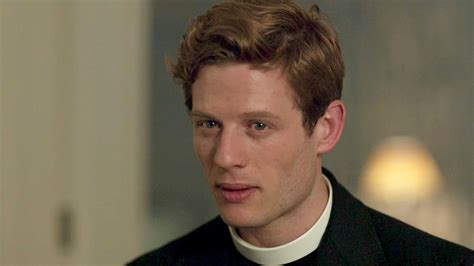

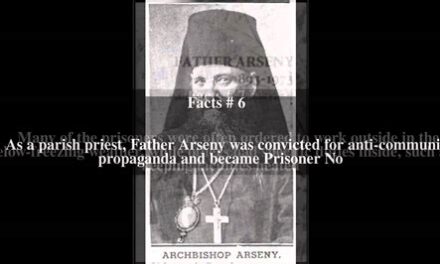
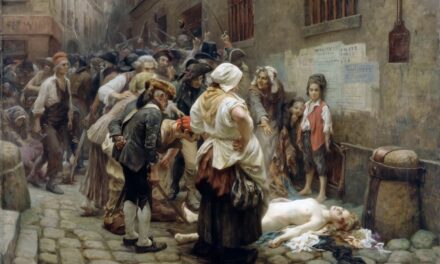
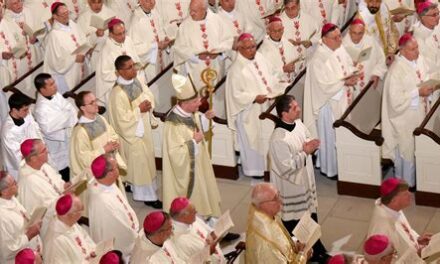





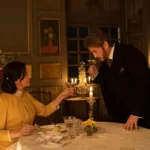



I totally agree. I lived in the United Kingdom for seven years and in that time, the BBC inserted every political talking point they could find into any drama (it didn’t even matter which drama). Islam making a march into town and killing people with bombs in London? Why, have an episode where a Muslim family is persecuted needlessly. And so on. I could safely predict what I was going to see in the next drama, just by reading the headlines in the newspaper. It’s about normalizing behaviors. It is designed to be so prevalent that we all become immune to it, tire of protesting, and just accept it.
Why watch it and say it’s a good show if you can’t accept that some people are different in their views and in the way they are born? At least they don’t encourage homophobia and they try to keep it P.C..
The vast majority of people are not homosexual and it’s perfectly natural that someone, “Troy” in this case, would have some kind of ‘aside’ reaction to his colleague, DCI Barnaby, when he was flirted with by a person of the same sex – which is what happened in that very first episode of Midsomer Murders – I saw it. It’s a great show in general – and that episode was hysterical. It shouldn’t offend anybody and frankly people just need to get over themselves and live their lives. Very few people care about homosexuality any more, I think it is terrific how people have grown and accepted the many different lifestyles people live nowadays. The character of ‘Troy” was just one of a regular guy and he, too, is allowed his feelings and opinions.
I have watched almost every current BBC Masterpiece show. In the past few years I think almost every one of them has had a homosexual character. Downton Abbey, Grantchester, The Durrells, Home Fires, Indian Summers. What I find strange is that each character seems to always have relationship problems or other adjustment problems. I’m not sure if PBS is using this as their agenda to make people more sympathetic towards homosexuals but they are not portrayed as happy, well adjusted people.
Good point.